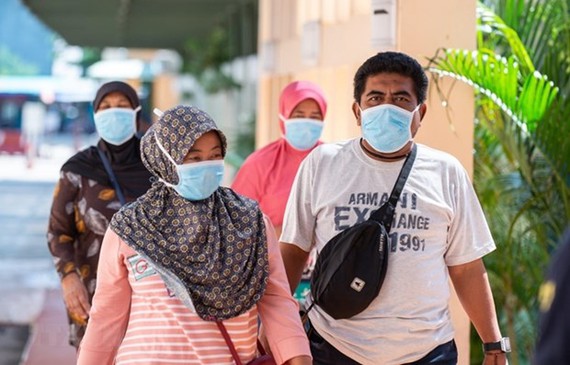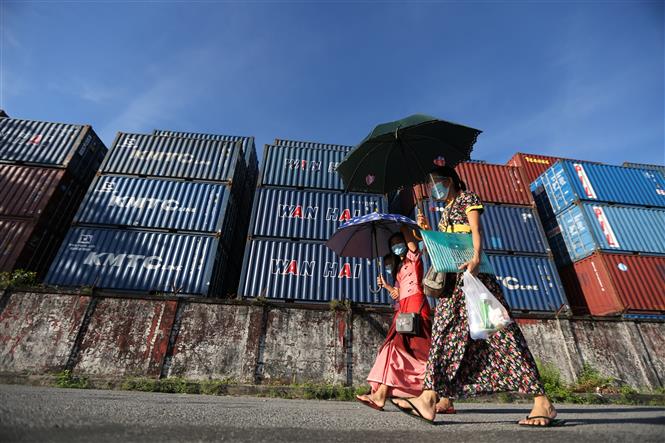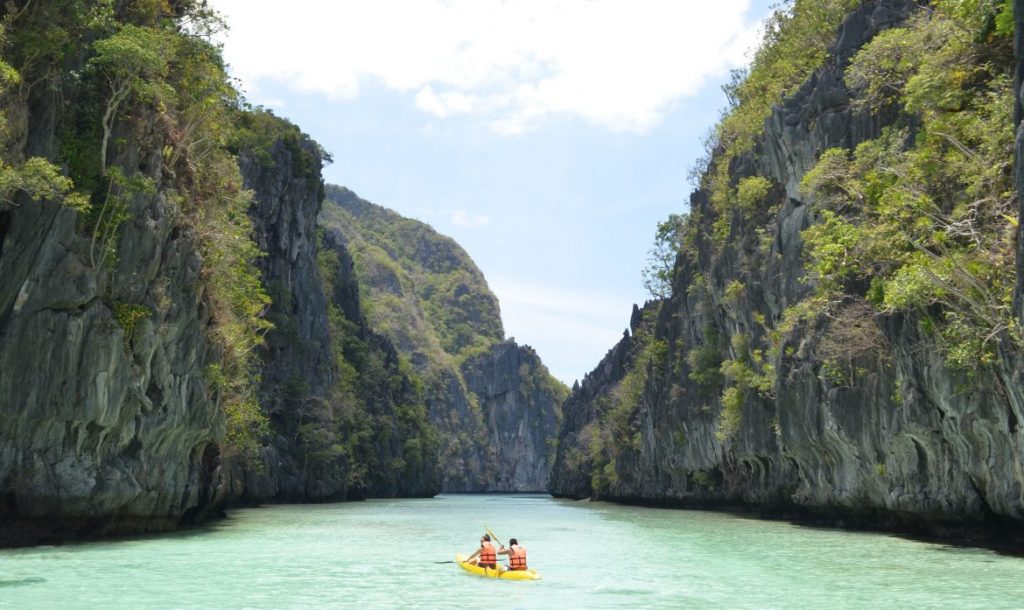Here’s what you need to know about border regulations and travel restrictions in Asia (the latest update version on 15th August).
Cambodia
Cambodian borders began reopening in late May, but e-visa and visa on arrival programs have been suspended and tourist visas are not being issued. Travelers will need a negative test taken within 72 hours of their arrival date and the government has asked eligible travelers to pay a $2,000 deposit to cover the cost of further testing and quarantine. A mandatory test, the cost of which is deducted from the deposit, will be conducted upon arrival. All travelers must quarantine for 14 days upon arrival and will be required to purchase a mandatory $90 health insurance policy that will be valid for 20 days.
13 August 2021 – The Thai/Cambodia border is reopened to migrant workers returning from Thailand to Cambodia.
12 August 2021 – Phnom Penh curfew extended until 20th August from 10 pm to 3 am.
7 August 2021 – Cambodia lifts the travel ban on Indians and foreigners travelling from India.
Open to international travellers: Yes, with restrictions.
Visa on arrival: Not available.
Requirements before departure: You must arrange a visa in advance, have a negative COVID-19 test result within 72 hours of departure and have travel insurance with $50,000 US medical cover.
Quarantine: All passengers must quarantine in a government facility or a Government-approved hotel in Phnom Penh for 14 days. You must undertake a further two COVID-19 tests (upon arrival and on the 13th day of stay in a quarantine facility).
Extra costs: You must pay a deposit of $2000 US to the Cambodian government to cover COVID services while you are there (tests, waiting facilities, transport, potential medical bills). Anything not spent will be returned to you once you have completed your 14-day quarantine.
Current internal travel restrictions: Within the country, travel restrictions between provinces, local curfews and regional lockdowns persist. Many hotels, public businesses and tourist attractions have been forced to close due to lack of custom.
Face coverings: Masks are not compulsory but are recommended in all public places.
Border crossings: You must enter Cambodia by air. Once in the country, you are not allowed to cross the border from Cambodia into Thailand, Laos or Vietnam.
Laos
Nationwide lockdown extended across Laos until at least 18th August 2021.
Open to international travellers: No. All visas on arrival are currently suspended and visas to international travellers are only being given in special circumstances to those on official business in the country (e.g. experts, technicians, diplomats).
Visa on arrival: Not available.
Requirements before departure: You must arrange a visa in advance, have a negative COVID-19 test result within 72 hours of departure, fill out a Certificate of Entry, a Health Declaration form and show a booking for 14 nights in a quarantine hotel or centre.
Quarantine: All passengers must quarantine in a government facility government-approved hotel for 14 nights upon arrival in Laos. All arrivals must wear a GPS tracker for the entire duration of their stay.
Extra costs: $200 USD deposit is needed for the GPS tracker, as well as $6 USD for rental
Current internal travel restrictions: Lockdown is currently in place in Vientiane until 19th June 2021. Travel restrictions vary depending on the province.
Face coverings: Masks are compulsory in all public places.
Border crossings: The borders to Thailand, Cambodia and Vietnam are open with restricted access.
Indonesia
U.S. citizens will be allowed to enter only if they have an existing and valid visa or residence permit. If allowed to enter, travelers must show proof of vaccination and a test negative test taken within 72 hours of arrival. All visitors must complete a minimum eight-day quarantine at a government-designated facility will be mandatory.
9th August 2021 – The COVID-19 restrictions are extended in Java and Bali until at least 16th August.
5th July 2021 – The reopening of Bali is delayed in the face of new lockdowns.
6th July 2021 New Travel Restrictions – From 6th July, only vaccinated travellers are allowed to enter Indonesia. Upon arrival, they must complete 8 days quarantine in a hotel (increased from 5 days) and must provide a negative PCR test 72 hours prior to travel, as well as negative PCR tests on days 1 and 7 of quarantine. Unvaccinated Indonesian nationals are allowed to travel back to Indonesia but will be required to have an obligatory COVID-19 vaccine before they are allowed to leave quarantine.
Open to international travellers: No. Indonesia is currently not open to international travellers. There are exceptions for diplomats, holders of Indonesian residency permits and those travelling for essential business. (Note – Some foreign nationals had been entering the country on B211 Business Visas, which were arranged by travel agencies and required sponsorship from an Indonesian company. Since 21st July 2021, these visas have been suspended.)
Visa on arrival: Not available.
Quarantine: Any new arrivals in Indonesia with a valid visa (that meet the specific categories above) must quarantine for a minimum of 8 days. From 6th July 2021, all travellers must be fully vaccinated in order to enter Indonesia. Those from Nepal, India, Pakistan and the Philippines must quarantine for 14 days. (See suggestions for quarantine hotels in Jakarta here.)
Current internal travel restrictions: There are restrictions on travel and social activity until 14th June 2021. Schools remain closed, shops and restaurants have limited hours and businesses must limit the number of employees. Restrictions vary according to the region.
Face coverings: Masks are compulsory in all public places (indoor and outdoor) and those not adhering to the rule can be fined.
Border crossings: The land border crossing into Borneo Malaysia on the island of Kalimantan is currently closed.

Malaysia
Malaysia has banned the entry of foreign nationals from high-risk countries, including the U.S. Some exceptions can be made for foreign travelers with long-term passes, but they will have to request approval from the Immigration Department first. These travelers will need to be PCR tested before their trip and must either quarantine or check in for their treatment immediately when they arrive
8th August 2021 – Malaysia approves home quarantine for fully-vaccinated residents and non-residents of Malaysia who have a home or second home in the country.
8th August 2021 – Interstate travel opens for fully-vaccinated citizens including spouses who live in different states and parents who wish to visit their child under 18 years old.
Open to international travellers: No. Malaysia is not currently open to international travellers except for those holding residency permits and anyone with official work contracts.
Visa on arrival: Not available.
Quarantine: Any new arrivals who meet the strict criteria must quarantine for 10-14 days in a government-designated facility or at home (as of new rules: 8th August 2021). You must have a negative COVID-19 test before you can leave quarantine.
Current internal travel restrictions: Inter-state travel across Malaysia is currently not allowed.
Face coverings: Masks are compulsory in all public places including shops, restaurants, cinemas, markets and restaurants.
Border crossings: Crossing the border into Thailand and Singapore is prohibited (Peninsular Malaysia) and crossing into Indonesia (Borneo) is also disallowed.
Myanmar
MYANMAR MILITARY COUP – As well as grappling with COVID-19, Myanmar is in the throes of a violent military coup. Most governments advise against all but essential travel to the country.
31st July 2021 – Myanmar extends travel suspension until at least 31st August.
Open to international travellers: No. All international flights to Myanmar and visas have been suspended until further notice. Business visas are available and are assessed on a case-by-case basis.
Visa on arrival: Not available.
Quarantine: Any new arrivals to Myanmar must quarantine for seven days in a government facility, followed by a further seven days in their home, private residence or hotel of their choice. A COVID-19 test must be taken on day seven before the traveller is allowed to leave the government facility.
Current internal travel restrictions: Travel restrictions vary from state to state. Some states have stay-at-home orders. To travel domestically you may have to take a COVID-19 test or quarantine upon arrival, especially if you are travelling from a region with a stay-at-home order
Face coverings: Masks are compulsory in all public places and those disobeying the rule will be fined.
Border crossings: The land border crossing into Thailand is closed.

The Philippines
8th August 2021 – The Philippines extends ban on travellers from Indonesia, Thailand, Malaysia India, Sri Lanka, Bangladesh, Pakistan, UAE and Oman.
6th August 2021 – Manila enters third lockdown. Citizens obly allowed to leave home for essential reasons.
1st July 2021 – The Philippines reduce quarantine from 14 days to 7 days for vaccinated travellers from ‘green countries’.
Open to international travellers: No. The Philippines is only open to returning Filipino nationals, parents, children or spouses of Filipino nationals and those with a valid residency or work permit.
Visa on arrival: Not available.
Requirements before departure: If you match the criteria above before departing to the Philippines you will have to obtain a negative COVID-19 test result within 72 hours of boarding the plane. You will need a valid visa and proof of payment of your quarantine facility.
Quarantine: 14 days. (10 of these must be in a designated government facility, 4 of these can be in your place of residence.) You will need to take a COVID-19 test on the 9th day before you are released from government quarantine.
Current internal travel restrictions: There are restrictions on travel and the opening of public places depending on the number of live COVID-19 cases in each city/barangay. There are three levels of restrictions: ECQ, MCQ and GCQ. See the full overview for more information.
Face coverings: Face masks must be worn in all indoor places and on public transport, including jeepneys and taxis.
Singapore
11th July 2021 – The Singapore-Australia travel bubble has been delayed until the end of 2021.
Open to international travellers: Yes, with restrictions. Singapore is open to short term tourist visits from selected number of countries including Brunei, Mainland China, Taiwan, New Zealand and Vietnam. Visitors must secure an Air Travel Pass and take a PCR test when they arrive.
Visa on arrival: Not available.
Requirements before departure: You must apply for permission to enter Singapore to secure an Air Travel Pass and submit a mandatory online health declaration before you arrive. Travel insurance is compulsory and must cover COVID-19 hospitalisation and treatment to at least S$30,000.
Quarantine: Singapore has established some Safe Travel Lanes where visitors from certain countries may only have to do a reduced quarantine. Most travellers will be required to fulfil a two week quarantine in a SDF (Dedicated Facility). A number of hotels have been selected to house quarantining travellers. The Singapore quarantine hotel that you are assigned to is usually done by lottery, however, if you are happy to spend extra to reserve a suite, you can choose your accommodation from a preselected list (depending on availability).
Face coverings: Masks are obligatory in all public spaces in Singapore.
Current internal travel restrictions: Within the country, restrictions on crowds persist. There are caps on social gatherings and social distancing is still in place.
Border crossings: You must enter Singapore by air. Only emergency visits to Peninsular Malaysia are taking place using the land border.
Thailand
From July 1st 2021, the island of Phuket opened to vaccinated arrivals without the requirement of quarantine via the Phuket Sandbox scheme. The island of Koh Samui reopened quietly on 15th July 2021, and more destinations will follow later this year. Read more about Thailand’s reopening timeline here.
On 16th June 2021, Thai Prime Minister, Prayut Chan-o-chan, announced plans to “fully reopen Thailand within 120 days” to ease the suffering of the people.
Open to international travellers: Yes. Thailand is open to travellers from all over the world (apart from India).
Visa on arrival: Not available.
Requirements before departure: You must also apply for a COE (Certificate of Entry), have a negative COVID-19 test result within 72 hours of departure and have travel insurance with $100,000 US medical cover. If you are flying into Phuket, you must have proof of payment for your SHA+ Hotel. If you are not flying into Bangkok, you must have proof of payment for 14-day quarantine stay.
Quarantine: If you are not flying into Phuket and using the Phuket Sandbox Scheme, you must quarantine in a state quarantine facility or an alternative state quarantine hotel for 14 days upon arrival. (See list of quarantine hotels in Bangkok here.) You must undertake a further two COVID-19 tests in quarantine. Travellers who enter Thailand from 1st July via the Phuket Sandbox will have to stay on the island of Phuket for 14 days, but will not have to self isolate.
Face coverings: Masks are obligatory in all indoor and outdoor public spaces in Thailand.
Current internal travel restrictions: Within the country, restrictions on movement and social activity persist. Many hotels, public businesses and tourist attractions have been forced to close due to lack of custom.
Border crossings: You must enter Thailand by air. Once in the country, you are not allowed to cross the border into Cambodia, Laos, Myanmar or Malaysia.

Vietnam
The government has suspended entry indefinitely to all foreigners, with an extremely limited number of exceptions. Movement is heavily restricted and health checkpoints have been set up throughout the country. Those who are allowed to enter will have to present a negative test result and will be subject to more testing and a mandatory quarantine at their own expense when they arrive.
Open to international travellers: No. Since 22nd March 2020, it has not been possible for any foreign national to travel to Vietnam. There are exceptions for Vietnamese repatriates, certain skilled workers, foreign investors and others with official business in the country. The granting of visas is assessed on a case-by-case basis.
Visa on arrival: Not available.
Quarantine: Any new arrivals in Vietnam (that meet the strict criteria above) must quarantine for a minimum of 14 days. (Recently extended to 21 days.)
Current internal travel restrictions: Regulations vary in each province. Within the country, travel restrictions between provinces, local curfews and regional lockdowns persist. Many hotels, public businesses and tourist attractions have been forced to close due to lack of custom.
Face coverings: Masks are compulsory in all public places in Vietnam and those not adhering to the rule can be fined.
Border crossings: All land borders into Vietnam are closed.
